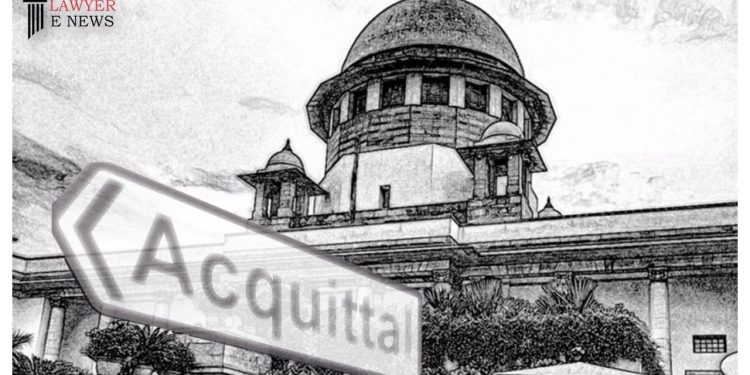Supreme Court Overturns Conviction in Disputed Passage Case: No Pre-determined Intent Found

On 11 April 2023, Supreme Court acquitted the accused in a recent case (Ajmer Singh & Ors. Vs State of Haryana) and observed that the date of the incident was not disputed, and it was not evident that the appellants had any pre-determined intention to cause harm. They were merely passing through the disputed passage in a trolley, and the weapons used in the altercation were common agricultural tools.
Facts
Appellants were convicted by the Trial Court for their involvement in a violent altercation that occurred on March 27, 1997, over a disputed passage. Both parties sustained injuries during the incident, which began when Surender Singh tried to drive a tractor trolley through the disputed passage. This led to a heated argument and a physical altercation involving lathi and kassi (spade) blows.
The High Court upheld the appellants’ conviction and dismissed their appeal. However, it later modified the sentencing due to an interim order that reduced the sentence under Section 307 read with Section 149 IPC from seven years to five years. This modification was not initially incorporated into the detailed judgment.
The appellants challenged their conviction in the Supreme Court and argued that their case was not adequately considered by the lower courts. They claim that they were not the aggressors and were acting in self-defense. Furthermore, they assert that the disputed passage, which was the root cause of the altercation, was later determined to be owned by the Gram Panchayat and not the complainant party.
Observed and Held
Supreme Court observed that the date of the incident was not disputed, and it was not evident that the appellants had any pre-determined intention to cause harm. They were merely passing through the disputed passage in a trolley, and the weapons used in the altercation were common agricultural tools.
The court noted that the main dispute revolved around the use of the passage, which the complainant party claimed as their own. However, it was later determined in a civil case that the passage belonged to the Gram Panchayat and not the complainant party.
The court acknowledged that both parties had sustained injuries during the altercation but found that the High Court had not given due consideration to the injuries suffered by the appellants. Instead, the focus was mainly on the injuries and evidence presented by the complainant party, while the appellants’ defense was overlooked.
The Supreme Court held that the conviction and sentence of the appellants could not be legally sustained. The appeals were allowed, and the judgment and order of conviction and sentence passed by the Trial Court and affirmed by the High Court were set aside.
Ajmer Singh & Ors. Vs State of Haryana






